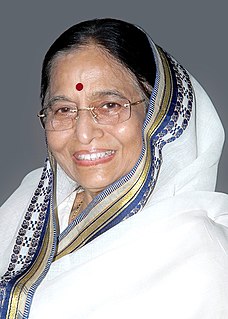A Quote by Charles Darwin
Ultimately a highly complex sentiment, having its first origin in the social instincts, largely guided by the approbation of our fellow-men, ruled by reason, self-interest, and in later times by deep religious feelings, confirmed by instruction and habit, all combined, constitute our moral sense or conscience.
Related Quotes
The truly great consider, first, how they may gain the approbation of God, and, secondly, that of their own conscience. Having done this, they would then willingly conciliate the good opinion of their fellow-men. But the truly little reverse the thing. The primary object with them is to secure the applause of their fellow-men; and having effected this, the approbation of God and their own conscience may follow on as they can.
Mr. J.S. Mill speaks, in his celebrated work, "Utilitarianism," of the social feelings as a "powerful natural sentiment," and as "the natural basis of sentiment for utilitarian morality," but on the previous page he says, "if, as is my own belief, the moral feelings are not innate, but acquired, they are not for that reason less natural." It is with hesitation that I venture to differ from so profound a thinker, but it can hardly be disputed that the social feelings are instinctive or innate in the lower animals; and why should they not be so in man?
Looking to future generations, there is no cause to fear that the social instincts will grow weaker... the social instincts, - the prime principle of man's moral constitution - with the aid of active intellectual powers and the effects of habit, naturally lead to the golden rule, "As ye would that men should do to you; do ye to them likewise"; and this lies at the foundation of morality.
Our scientific power has outrun our spiritual power. We have guided missiles and misguided men. Our hope for creative living lies in our ability to reestablish the spiritual needs of our lives in personal character and social justice. Without this spiritual and moral reawakening we shall destroy ourselves in the misuse of our own instruments.
An older child, one who possesses a conscience, will be troubled with self-reproaches and feelings of shame for his naughtiness, even if he is not discovered. But our two-year-olds and our three-year- olds experience guilt feelings only when they feel or anticipate disapproval from the outside. In doing this, they have taken the first steps toward the goal of conscience, but there is a long way ahead before the policeman outside becomes the policeman inside.
Lastly, our ancestors established their system of government on morality and religious sentiment. Moral habits, they believed, cannot safely be trusted on any other foundation than religious principle, nor any government be secure which is not supported by moral habits.... Whatever makes men good Christians, makes them good citizens.
Insecurity refers to a profoud sense of self-doubt-a deep feeling of uncertainty about our basic worth and our place in the world. Insecurity is associated with chronic self-consciousness, along with a chronic lack of confidence in ourselves and anxiety about our relationships. The insecure man or woman lives in constant fear of rejection and a deep uncertainty about whether his or her own feelings and desires are legitimate.
Every religious tradition on which we draw has a reverence for life. We are a part of an intricate web of life. Every tradition on which we draw teaches that the ultimate expression of our spirituality is our action. Deep spirituality leads to action in the world. A deep reverence for life, love of nature's complex beauty and sense of intimate connection with the cosmos leads inevitably to a commitment to work for environmental and social justice.
Human behaviour reveals uniformities which constitute natural laws. If these uniformities did not exist, then there would be neither social science nor political economy, and even the study of history would largely be useless. In effect, if the future actions of men having nothing in common with their past actions, our knowledge of them, although possibly satisfying our curiosity by way of an interesting story, would be entirely useless to us as a guide in life.
But what of the voice and judgment of conscience? The difficulty is that we have a conscience behind our conscience, an intellectual one behind the moral. ... We can see quite well that our opinions of what is noble and good, our moral valuations, are powerful levers where action is concerned; but we must begin by refining these opinions and independently creating for ourselves new tables of values.



































